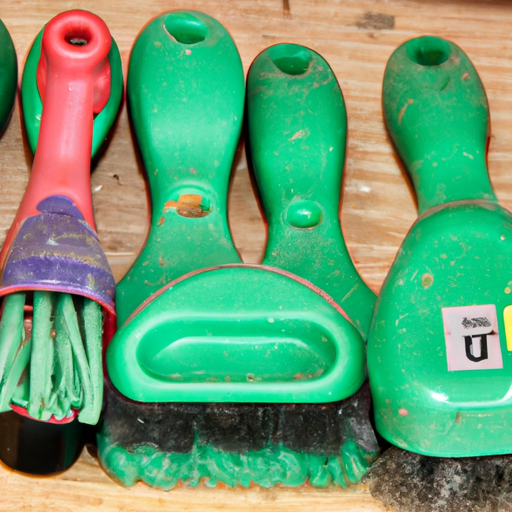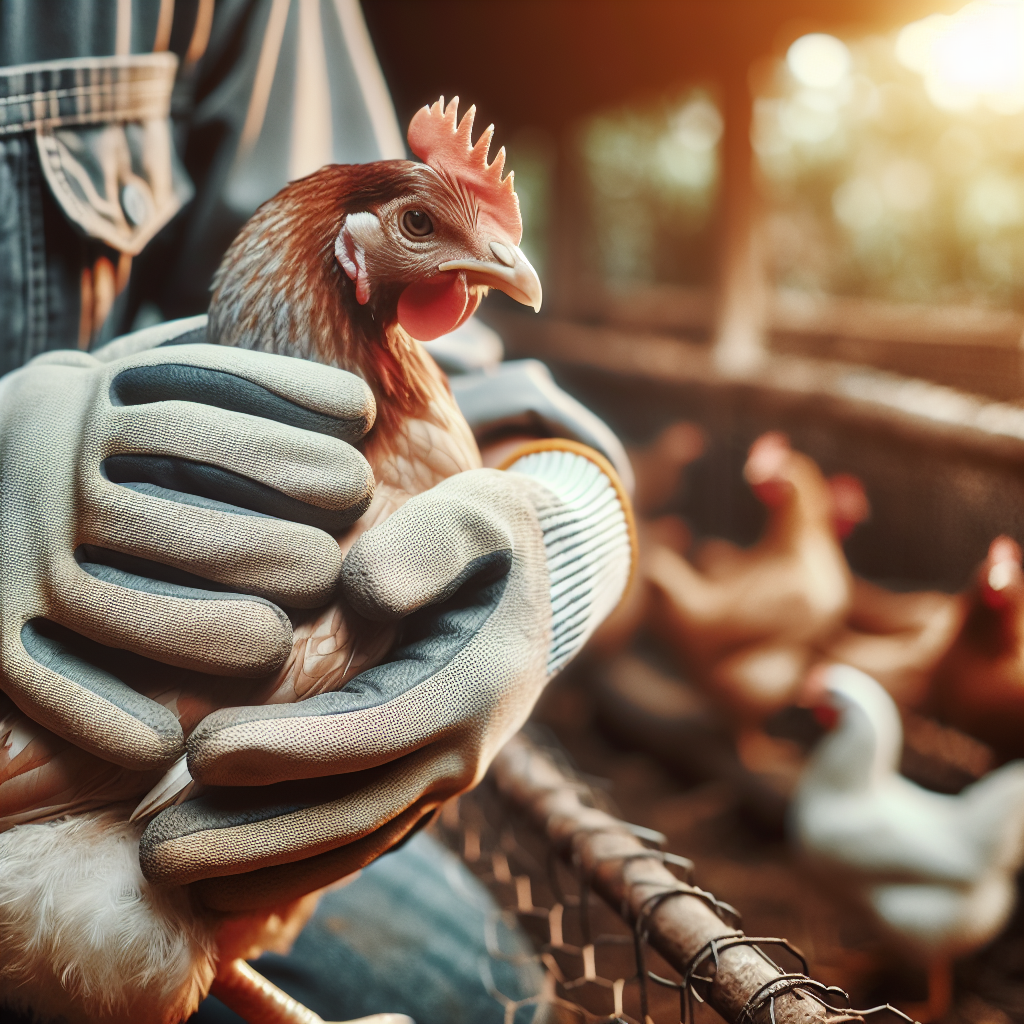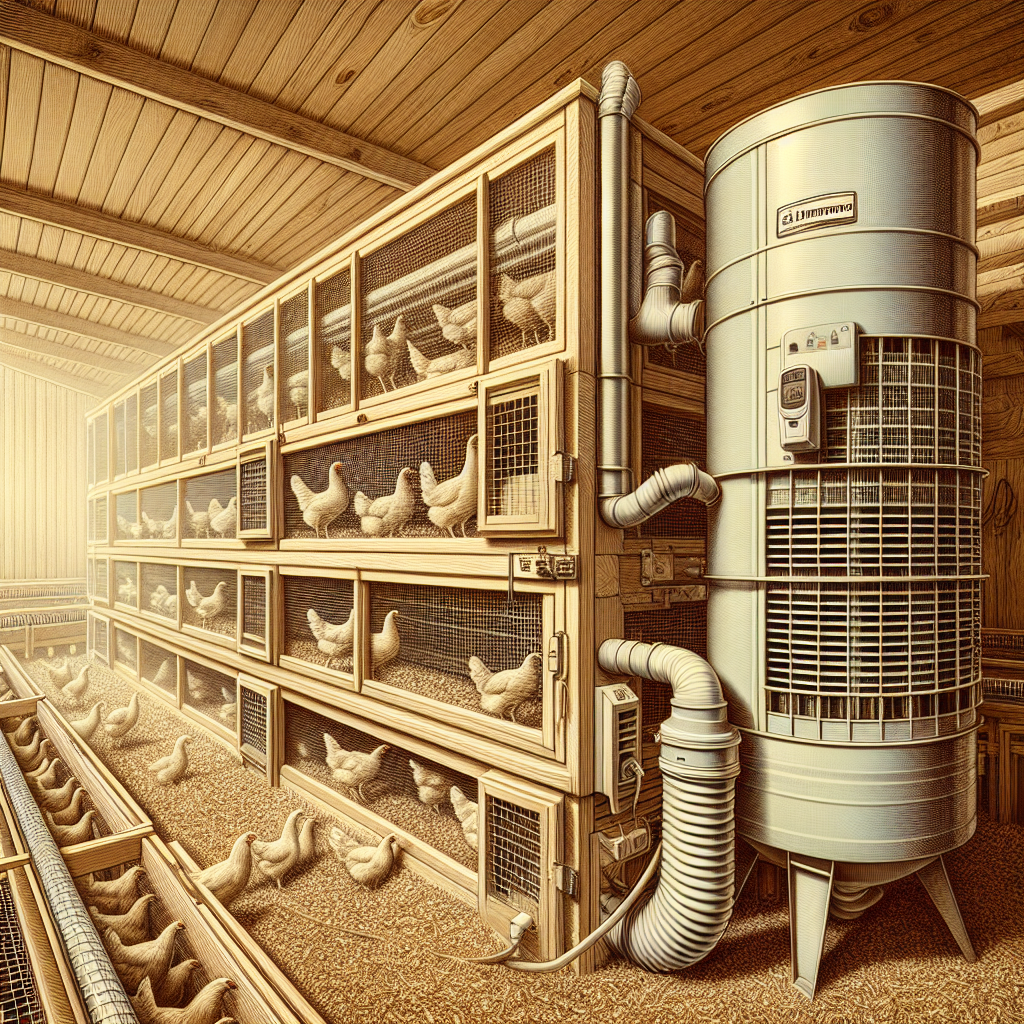Keeping your chicken coop in good condition is essential for the health and well-being of your feathered friends. But with so many various tasks to consider, it can sometimes be overwhelming to know where to start. That’s why we have compiled a comprehensive guide to help you navigate through the essential maintenance routines for your chicken coop. From cleaning and sanitizing to checking for structural issues, we’ve got you covered. So grab your gloves and join us as we explore the steps to ensure a happy and healthy home for your chickens.
Regular Cleaning
Daily Cleaning
To keep your chicken coop in tip-top shape, it’s important to establish a regular cleaning routine. Daily cleaning tasks ensure that your chickens have a clean and healthy living environment. This includes removing any uneaten food, cleaning the water containers, and tidying up any feathers or waste that may have accumulated throughout the day. By addressing these tasks on a daily basis, you can prevent the buildup of bacteria and odors, promoting a cleaner and safer coop for your feathered friends.
Weekly Cleaning
In addition to daily cleaning, a thorough weekly cleaning is vital for maintaining a hygienic chicken coop. During your weekly cleaning session, you should remove all bedding material from the coop floor and nesting boxes. This allows you to clean any droppings or soiled bedding, reducing the risk of pests and disease. Scrubbing the coop walls, perches, and any other surfaces with a mild detergent solution will help to eliminate any bacteria that may have accumulated. Lastly, make sure to rinse thoroughly and allow the coop to dry completely before adding fresh bedding.
Monthly Cleaning
Once a month, it is recommended to perform a more detailed cleaning of your chicken coop. This involves a thorough inspection of the coop’s structure, as well as cleaning and disinfecting all surfaces. Check for any signs of damage or wear, such as loose boards or rusty nails, and repair or replace as necessary. Additionally, remove all nesting material from the nesting boxes and disinfect them to prevent the buildup of parasites. By following a regular monthly cleaning routine, you can ensure that your chicken coop remains a clean and healthy environment for your flock.
Checking Structural Integrity
Inspecting Walls and Roofs
Regularly inspecting the walls and roof of your chicken coop is essential for maintaining its structural integrity. Look for any cracks, holes, or signs of damage that could compromise the coop’s ability to keep your chickens safe and protected. Patch up any cracks or holes with suitable materials and ensure that the walls and roof are properly sealed to prevent water leakage and drafts. By addressing these issues promptly, you can ensure that your coop remains a secure and comfortable home for your feathered friends.
Examining Doors and Windows
The doors and windows of your chicken coop are vital for allowing proper ventilation and providing access for both yourself and your chickens. As part of your maintenance routine, regularly examine these openings to ensure they are in good working condition. Check for any loose hinges, damaged screens, or gaps that may allow pests to enter the coop. It’s important to repair or replace any faulty components to maintain a secure and predator-proof environment for your flock.
Checking for Pests
Pests are a common problem in chicken coops, and regular inspections are crucial for identifying and addressing any infestations. Look for signs of rodents or insects, such as chew marks, droppings, or nests. Implement pest control measures such as traps, bait stations, or natural deterrents to rid your coop of unwanted guests. Regularly monitoring for pests will help to prevent potential health issues for your chickens and maintain a clean and safe coop environment.
Maintaining Ventilation
Cleaning Ventilation Openings
Proper ventilation is essential for maintaining an optimal living environment for your chickens. Regularly clean the ventilation openings in your coop to ensure unobstructed airflow. Clear away any debris or blockages that may accumulate, such as cobwebs or dust. This will help to promote fresh air circulation and prevent the buildup of moisture and ammonia, which can lead to respiratory issues for your flock.
Ensuring Proper Airflow
In addition to cleaning ventilation openings, it’s important to ensure proper airflow throughout the chicken coop. Make sure that windows, vents, and doors are positioned strategically to allow for cross-ventilation. This will help regulate temperature, control humidity, and reduce the risk of odors and ammonia buildup. By maintaining proper airflow, you can create a comfortable and healthy environment for your chickens.
Managing Bedding Material
Replacing Bedding Regularly
Regularly replacing bedding material is essential for keeping your chicken coop clean and hygienic. Bedding should be changed whenever it becomes soiled or damp, typically on a weekly basis. By removing soiled bedding promptly, you can prevent the growth of bacteria and minimize odors. Consider composting the used bedding material to create nutrient-rich compost for your garden.
Using Suitable Bedding Material
Choosing the right bedding material is crucial for the overall health and well-being of your chickens. Opt for absorbent and dust-free materials, such as straw, wood shavings, or shredded paper. These materials provide a comfortable and hygienic surface for your chickens to walk and roost on. Avoid using materials like cedar chips, which can be harmful if ingested. Regularly evaluate the condition of the bedding material and ensure that there is sufficient depth to provide cushioning and insulation for your flock.
Preventing and Managing Pest Infestations
Implementing Pest Control Measures
Preventing and managing pest infestations is essential for the health and safety of your chickens. Implementing pest control measures such as regular cleaning, proper storage of feed, and sealing any openings can help minimize the risk of infestation. Consider using natural deterrents or consult with a professional pest control service to address any persistent pest issues. By taking proactive measures, you can protect your flock from the damage and health risks associated with pests.
Regularly Inspecting for Signs of Infestation
Regular inspections are crucial to detect early signs of pest infestations. Look for droppings, chew marks, or unusual behavior among your chickens. Inspect the coop for any cracks, holes, or gaps that may provide entry points for pests. If you suspect an infestation, take immediate action to prevent it from spreading. Timely intervention and thorough inspections can help maintain a pest-free environment for your flock.
Securing Coop against Predators
Inspecting Fencing and Gates
Securing your chicken coop against predators is of utmost importance in ensuring the safety of your flock. Regularly inspect the fencing and gates surrounding the coop for any damage or gaps. Ensure that the fence is at least 6 feet high and buried at least 12 inches deep to prevent predators from digging underneath. Reinforce weak or damaged areas and make sure that gates are securely latched to prevent unauthorized entry.
Installing Predator-Proof Latches
Installing predator-proof latches on the doors and windows of your chicken coop adds an extra layer of security. These latches are designed to be sturdy and tamper-proof, preventing predators from gaining access to your flock. Regularly check the integrity of the latches and replace any faulty ones to ensure that your coop remains predator-proof at all times.
Using Motion-Activated Lights
Motion-activated lights can be an effective deterrent against nocturnal predators. Install these lights around the perimeter of your chicken coop to startle and scare away potential threats. The sudden illumination can often deter predators from approaching the coop and keep your chickens safe. Regularly check the lights to ensure they are functioning properly and replace any burnt-out bulbs.
Checking Water and Feed Systems
Cleaning Water Containers
Regularly cleaning water containers is essential for maintaining a clean and healthy water source for your chickens. Empty and clean the water containers at least once a week, removing any debris or algae that may have accumulated. Consider using a mild disinfectant solution to sanitize the containers before refilling them with fresh water. This helps to prevent the growth of bacteria and keeps your chickens properly hydrated.
Examining Feeding Equipment
Inspecting the feeding equipment regularly ensures that your chickens have access to proper nutrition and minimizes the risk of contamination. Check the condition of feeders for any damage or signs of wear, such as sharp edges or rust. Replace or repair any faulty or damaged feeders promptly to prevent harm to your flock. Additionally, regularly clean the feeders to remove any mold, spoiled food, or debris that may have accumulated.
Maintaining Electrical Systems
Checking and Replacing Light Bulbs
If your chicken coop is equipped with lighting, it’s important to regularly check and replace light bulbs as needed. Burnt-out bulbs should be replaced promptly to ensure that your chickens have adequate lighting during the darker hours. Proper lighting helps to maintain regular egg production and promotes the overall well-being of your flock. Regularly inspect the wiring and connections of the lighting system to ensure they are in good condition and that there are no exposed wires.
Inspecting Wires and Connections
In addition to lighting, there may be other electrical systems in your chicken coop, such as heaters or automatic door openers. Regularly inspect the wiring and connections of these systems to ensure they are functioning properly and safely. Look for frayed wires, loose connections, or any other signs of damage. It’s important to address any electrical issues promptly to prevent accidents or fires. If you are unsure about electrical maintenance, it is always advisable to consult with a professional electrician.
Checking Nesting Boxes
Cleaning Nesting Boxes
Clean nesting boxes are essential for promoting the comfort and health of your laying hens. Regularly clean the nesting boxes by removing any old bedding material and soiled eggs. Wipe down the surfaces with a mild disinfectant solution to eliminate bacteria and reduce the risk of egg contamination. Make sure the nesting boxes are dry before adding fresh bedding material.
Providing Adequate Bedding
Adequate bedding in the nesting boxes helps to create a cozy environment for your chickens to lay their eggs. Use soft materials such as straw, wood shavings, or shredded paper to provide a comfortable and clean surface for your hens. Regularly monitor the nesting boxes to ensure that they have sufficient bedding and replace it as needed. Comfortable and clean nesting boxes contribute to higher egg production and healthier laying hens.
Monitoring Health and Well-being of Chickens
Regular Health Checks
Routine health checks are crucial for monitoring the well-being of your chickens. Regularly inspect your flock for any signs of illness, injury, or abnormal behavior. Look for symptoms such as lethargy, loss of appetite, swollen eyes, or abnormal droppings. If you notice any concerning symptoms, seek advice from a veterinarian experienced in poultry health. Regular health checks can help identify potential issues early and enable prompt intervention.
Addressing Illness or Injury
If any of your chickens become ill or injured, it’s important to address their needs promptly. Isolate sick or injured birds from the rest of the flock to prevent the spread of disease and provide appropriate medical care. Consult with a poultry veterinarian to determine the best course of treatment and follow their recommendations carefully. By addressing illness or injury promptly, you can minimize the impact on your flock’s overall health.
Monitoring Behavior and Egg Production
Observing the behavior and egg production of your chickens on a regular basis can provide valuable insights into their overall health and well-being. Monitor their egg-laying patterns, ensuring that they are laying consistently and producing eggs of good quality. Any significant changes in behavior or egg production should be noted and investigated. Healthy chickens should exhibit alertness, a good appetite, and engage in normal social behavior. By staying vigilant and attentive to the behavior of your flock, you can quickly identify any potential health concerns and take appropriate action.
By following a comprehensive maintenance routine for your chicken coop, you can ensure a safe, clean, and healthy environment for your feathered friends. Regularly cleaning, inspecting, and addressing any issues that arise will help to prevent disease, promote optimal egg production, and keep your chickens happy and thriving. Remember, a well-maintained coop is the key to successful chicken-keeping.




